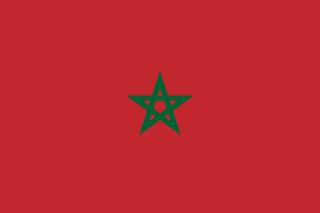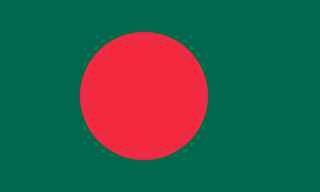Population
37,112,080
Last updated:
1 NovArea
710,850 km2
Last updated:
1 NovCurrency
Moroccan dirham (MAD)
Last updated:
1 NovOfficial Language
Arabic and Berber
Last updated:
1 NovPhone code number
+212
Last updated:
1 NovInternet TLD
.ma
Last updated:
1 NovAverage monthly salary
690 $
Last updated:
1 NovTotal millionaires
4,800 persons
Last updated:
1 NovTotal billionaires
1 persons
Last updated:
1 NovMilitary power
Passport rank
85
Last updated:
1 NovVisa free
63 country
Last updated:
1 NovReligions in Morocco
99% Islam (official)
1% other (inc. Christians, Jews, and Baháʼís)
Info about Morocco (History)
Morocco is the most northwestern country in the Maghreb region of North Africa. It opens onto the Mediterranean Sea to the north and the Atlantic Ocean to the west, and has land borders with Algeria to the east and the disputed Western Sahara to the south. Morocco also claims the Spanish exclaves of Ceuta, Melilla and Peñon de Velez de la Gomera, as well as several small Spanish-controlled islands off its coast. Its area is 446,550 km2 (172,410 sq mi) or 710,850 km2 (274,460 sq mi), with a population of approximately 37 million. The official and predominant religion is Islam, the official languages are Arabic and Berber; Moroccan Arabic and French are also widely spoken. Moroccan identity and culture is a vibrant blend of Berber, Arab and European cultures. Its capital is Rabat, and its largest city is Casablanca.
The first Moroccan state, inhabited since the Paleolithic era more than 90,000 years ago, was founded by Idris I in 788. It was subsequently ruled by a series of independent dynasties that culminated as a regional power in the 11th and 12th centuries under the Almoravids. and the Almohad dynasty, when they controlled most of the Iberian Peninsula and the Maghreb. In the 15th and 16th centuries, Morocco faced external threats to its sovereignty: Portugal captured part of the territory, and the Ottoman Empire invaded from the east. Otherwise, the Marinid and Saadi dynasties resisted foreign domination, and Morocco was the only North African country to escape Ottoman rule. The Alawite dynasty, which has ruled the country to this day, seized power in 1631 and expanded diplomatic and trade relations with the Western world over the next two centuries. Morocco's strategic location near the Mediterranean estuary has generated renewed interest in Europe; in 1912, France and Spain divided the country into respective protectorates, while retaining the international zone in Tangier. After periodic unrest and uprisings against colonial rule, Morocco regained its independence and reunited in 1956.
Since independence, Morocco has remained relatively stable and prosperous. It has the fifth largest economy in Africa and has significant influence in both Africa and the Arab world; he is considered a middle power in world affairs and is a member of the Arab League, the Mediterranean Union and the African Union. Morocco is a unitary semi-constitutional monarchy with an elected parliament. The executive branch is headed by the King of Morocco and the Prime Minister, and legislative power is vested in two chambers of parliament: the House of Representatives and the House of Councilors. Judicial power rests with the Constitutional Court, which can review the validity of laws, elections and referendums. The king has extensive executive and legislative powers, especially over the military, foreign policy and religion; he can issue decrees, called dahirs, which have the force of law, and he can also dissolve parliament after consultation with the prime minister and the president of the constitutional court.
Morocco claims ownership of the Non-Self-Governing Territory of Western Sahara, which it has designated as its southern provinces. In 1975, after Spain agreed to decolonize territory and cede control of Morocco and Mauritania, a guerrilla war broke out between these powers and some local residents. In 1979, Mauritania dropped its claims to the area, but the war continued. In 1991, a ceasefire was reached, but the issue of sovereignty remained unresolved. Today Morocco occupies two-thirds of the territory, and efforts to resolve the dispute have so far failed to break the political impasse.
Important information about Morocco
1- What is the population of Morocco?
answer: The total population of Morocco is 37,112,080 in 2021.
2- Who is the president of Morocco?
answer: Mohammed VI is the current president of Morocco.
3- What is the area of Morocco?
answer: The total area of Morocco is 710,850 km2 .
4- What is the official language of Morocco?
answer: The official language of Morocco is Arabic and Berber .
5- What is the currency of Morocco?
answer: The currency of Morocco is Moroccan dirham (MAD) .
6- How much is the average salary in Morocco?
answer: The average salary in Morocco is 690$ in 2021.
7- What is the passport rank of Morocco?
answer: The passport rank of Morocco is 85 in 2021.
8- How many countries we can travel with passport of Morocco without visa?
answer: You can travel to 63 countries with passport of Morocco .
9- What is the phone number code of Morocco?
answer: The phone number code of Morocco is +212 .
10- What is internet TLD of Morocco?
answer: The internet TLD of Morocco is .ma
11- How many billionaires are in Morocco?
answer: The total number of billionaires in Morocco is " 1 person" in 2021.
12- How many millionaires are in Morocco?
answer: The total number of millionaires in Morocco is " 4,800 person" in 2021.





